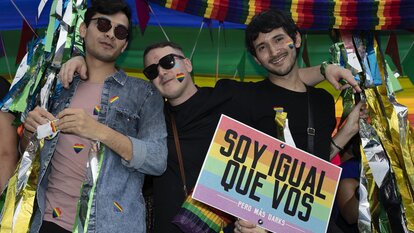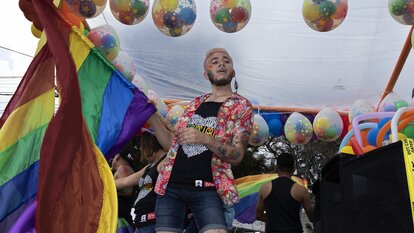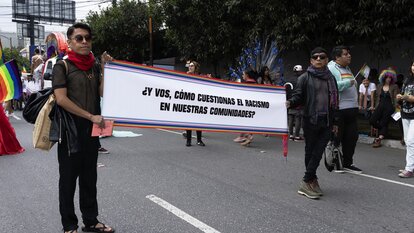Human Rights International
Guatemala – “Marcha de Orgullo”, Guatemala Pride – FNF was there!

Participants at the Parade for Sexual Diversity and Gender Identity in Guatemala City.
© Camila JuárezSupporting the Pride Movement, also known as Christopher Street Day, forms an integral part of our commitment to LGBTI rights in many countries, including Guatemala.Compared to other Latin American countries, the LGBTI situation here does not seem particularly critical. However, marriage equality, modern adoption rights and anti-discrimination laws are still a long way off.Homosexuality has been legal in Guatemala since 1871 and transsexuals are not discriminated against by any specific sections of penal law. However, as is often the case, the legal situation does not entirely reflect reality: Guatemala is very dangerous for non-heterosexuals, and the state cannot protect its gay citizens. Discrimination and violence are the order of the day. Activists report more than 20 targeted murders per year, but the number of unreported cases is far higher. The causes are complex, as always. They have to do with ultra-conservative social views, the educational influence of the Catholic Church,
patriarchal structures which persist among the indigenous majority of the population, and the growth of evangelical groups.



However, there have been positive developments, at least in the capital: the community is becoming more visible and more people participate in the “Marcha de Orgullo” (Guatemala Pride) every year. We support these developments through political human rights education. With the help of the local organisation Guate Activa, we organised a forum in Guatemala City for the 2018 “Marcha de Orgullo”. The event highlighted challenges, but also provided reasons to hope for positive change. Despite formidable opposition in conservative Guatemala, the coming years can bring progress. Openly lesbian MP Sandra Morán has submitted a draft of an anti-discrimination
law in parliament. There is also progress on the regional front: at the beginning of the year, the Inter-American Court of Human Rights ruled that same-sex marriage must be recognised – a binding ruling for every one of its 20 member states.